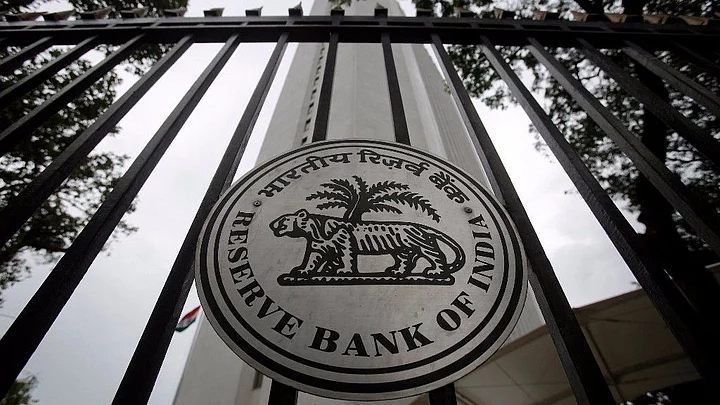1. RBI Slashes Growth Forecast, Leaves Key Rate Unchanged
The Reserve Bank of India’s monetary policy committee (MPC) on Thursday, 5 December slashed its GDP growth estimate but disappointed markets and borrowers by keeping its key policy rate unchanged after reducing it five consecutive times in 2019. It was widely expected that the central bank would reduce its repo rate — at which it lends to banks — by 25 basis points to a 10-year low of 4.9%.
RBI retained the repo rate at 5.15% even as it cut its GDP growth estimate for 2019-20 by 110 basis points to 5% from 6.1% forecast two months earlier. Despite the lower growth , RBI said inflation would be higher than expected, in the range of 4.7% to 5.1%.
(Source: The Times of India)
2. Tech Industry Sees Two Pain Points in Data Protection Bill
The tech industry’s relief at the Personal Data Protection (PDP) Bill allowing free flow of non-critical and non-sensitive data is mixed with apprehension over the proposed law’s two new provisions largely affecting big internet firms.
The PDP Bill proposes voluntary verification of users on social media platforms and sharing of anonymised data by companies with the government.
Government officials speaking off record to ET had said on Wednesday that the verification clause was to make social media more “responsible” and that firms will have to devise a mechanism via which users can voluntarily verify themselves. Users who opt out will be flagged.
(Source: The Economic Times)
3. Circular on Intermediary Services Withdrawn
The government withdrew a circular issued in July on what constituted ‘intermediary’ services, providing respite to the business and knowledge process outsourcing (BPO, KPO) industry.
Under the circular, they were regarded as intermediaries engaged in the supply of goods and services and not exporters. This brought several multinational back offices located in India, among other such service providers, under the ambit of 18% GST. Several of them were handed showcause notices by the tax department after the circular was issued.
Besides, GST refunds were held up by the tax authorities on account of service providers being regarded as intermediaries and not exporters — which are eligible for sops. These may now be released.
(Source: The Economic Times)
4. After PMC Bank Scam, RBI to Tighten Norms for Urban Co-Op Banks
The Reserve Bank of India (RBI) on Thursday, 5 December announced a slew of new policies for urban cooperative banks (UCBs) that would focus on defining exposure limits, creation of a credit repository and enhancing cyber-security.
The proposed tightening of norms comes after the PMC Bank scam, which revealed that the bank had an exposure of over Rs 6,500 crore or 73% of its total assets to real estate firm Housing Development and Infrastructure (HDIL).
RBI then came down heavily on the bank for the fraud, and imposed curbs including capping withdrawals at Rs 1,000, which was later enhanced to Rs 50,000 allowing over 78% of the customers to withdraw their entire account balance.
(Source: The Financial Express)
5. Indian Shrimp Looks to China for Demand Growth
Indian shrimp looks at China for growth in demand as US imports is seen slowing. According to a trade report by FAO’s Globefish, which is responsible for information and analysis on international fish trade and markets, China is now the world’s number one market for shrimp and strong demand from China kept the international shrimp trade stable in 2019.
Globefish reports that during the second half of 2019, international shrimp trade escaped another market crash supported by strong imports by China. However, the three other large traditional markets — the US, the EU and Japan — posted negative import growths during this period.
(Source: The Financial Express)
6. BSNL Credits October Salaries
State-owned Bharat Sanchar Nigam Ltd (BSNL) has credited October salary on Thursday, 5 December while that of November would be delayed further.
The funds for the salary payment are from certain internal accruals and some payment that has come from the Department of Telecommunications (DoT), sources said.
Employees of BSNL also confirmed that the salaries were credited into their bank accounts.
(Source: The Hindu BusinessLine)
7. FM’s Remarks Over Onion Prices Spur Protest
The political sensitivity of onion prices has come to haunt the ruling BJP with the Finance Minister Nirmala Sitharaman unwittingly lending fervour to the Opposition’s protests with her “I don’t eat onion” remark during a Lok Sabha debate on Wednesday, 4 December.
In what the Congress later categorised as her “Mary Antoinette moment”, the Finance Minister had said, “I don’t eat a lot of onions and garlic, so don’t worry. I come from a family that doesn’t have much to do with onions.”
Soon enough, the social media was buzzing with spoofs and satire over the remark and it was only a matter of hours before the Congress caught on to the trend.
(Source:The Financial Express)
8. Disinvestment-Bound Air India’s Loss Soars to a Record
Air India Ltd plunged to a record net loss underscoring an intensely competitive domestic aviation market and adding strength to calls for privatizing the national carrier.
The New Delhi-based carrier posted a provisional net loss of ₹8,556.35 crore in 2018-19, civil aviation minister Hardeep Singh Puri told the Lok Sabha on Thursday. It had a net loss of ₹5,348.18 crore in the previous year.
Accumulated losses at Air India have swelled to about 69,575.64 crore in the past decade, Puri said.
(Source: Mint)
9. Saudi Aramco Raises $25.6 Billion in World’s Biggest IPO
Saudi Aramco raised $25.6 billion from the world’s biggest initial public offering, closing a deal that became synonymous with the kingdom’s controversial crown prince and his plans to reshape the oil-rich nation.
The state-owned oil giant set the final price of its shares at 32 riyals ($8.53), valuing the world’s most profitable company at $1.7 trillion. It received total bids of $119 billion.
(Source: Mint)
(At The Quint, we question everything. Play an active role in shaping our journalism by becoming a member today.)
